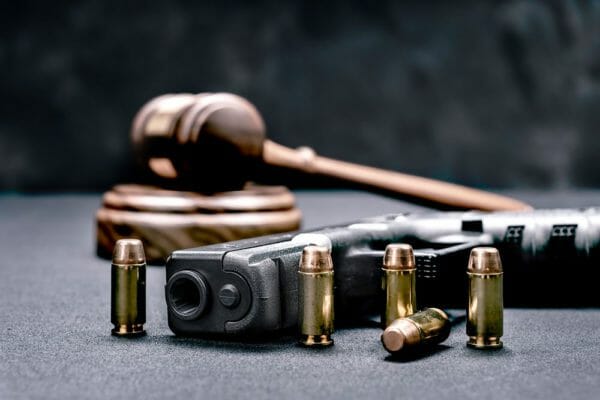
A panel of three judges from the United States Third Circuit Court of Appeals has ruled it is unconstitutional for the Commonwealth of Pennsylvania to ban young adults from openly carrying firearms.
Pennsylvania Governor Josh Shapiro (D) issued an emergency order along with two other statutes banning the open carrying of firearms by residents between the ages of 18 and 20. The order led to the Firearms Policy Coalition (FPC) and the Second Amendment Foundation (SAF) suing the state over the order in Madison v. Commissioner Pennsylvania State Police. The Plaintiffs lost in District Court before appealing to the Third Circuit.
The Commonwealth tried to argue that people under 21 are not part of “the people” and, therefore, do not have Second Amendment protections. According to the defendants, Americans are not adults until age 21 and do not enjoy constitutional protections until that age. The court resoundingly rejected that argument. It highlighted that anywhere in the United States Constitution where the founding fathers wanted an age limit, they explicitly stated an age. For example, the founding document states an age for the President and to serve in Congress but doesn’t state one for the Second Amendment. The court highlighted other rights applying to all Americans, not just those 21 or older.
The court relied heavily on the Supreme Court’s Bruen decision in its reasoning. First, the court looked at the text of the Second Amendment and determined that the original text did not ban the carrying of firearms by those under 21. From there, the burden shifts to the state to provide historical analogues from the founding era that show similar laws. The state could not provide those. They tried to use laws from the Reconstruction period after the ratification of the Fourteenth Amendment in 1868. The court rejected this often-used date because the Fourteenth Amendment did not change the meaning of the Second Amendment. It just confirmed that the restrictions placed on the federal government also apply to the states.
“Notwithstanding the legal status of 18-to-21-year-olds during that period, however, the Commissioner’s position is untenable for three reasons,” the order reads. “First, it supposes that the first step of a Bruen analysis requires excluding individuals from ‘the people’ if they were so excluded at the founding. That argument conflates Bruen’s two distinct analytical steps. Although the government is tasked with identifying a historical analogue at the second step of the Bruen analysis, we are not limited to looking through that same retrospective lens at the first step. If, at step one, we were rigidly limited by eighteenth century conceptual boundaries, ‘the people’ would consist of white, landed men, and that is obviously not the state of the law.10 Cf., Bruen, 142 S. Ct. at 2132 (noting that the Second Amendment’s “reference to ‘arms’ does not apply ‘only [to] those arms in existence in the 18th century’”); Range, 69 F.4th at 104-05 (observing that founding-era gun restrictions based on ‘race and religion’ such as those on ‘Loyalists, Native Americans, Quakers, Catholics, and Blacks’ would now be ‘unconstitutional under the First and Fourteenth Amendments’).”
The Commissioner of Pennsylvania State Police, Colonel Christopher Paris, also tried the novel approach of arguing that the plaintiffs were suing the wrong person. The defense claimed that since the state police do not issue concealed carry permits, the state police shouldn’t be the target of the lawsuit. The plaintiffs argued that the lawsuit is about open carry, which does not require a permit, and the State Police are in charge of enforcement of the ban, so they are the proper party to sue. The court agreed with the plaintiffs.
One Judge dissented from the majority opinion. She argued that “the people” are those 21 and over. The other two judges rejected her argument.
The court remanded the case back to the District Court to issue the proper relief for the plaintiffs. Pennsylvania is expected to ask for an en banc hearing, meaning the entire bench will hear the case if granted.
About John Crump
John is a NRA instructor and a constitutional activist. John has written about firearms, interviewed people of all walks of life, and on the Constitution. John lives in Northern Virginia with his wife and sons and can be followed on Twitter at @crumpyss, or at www.crumpy.com.

from https://ift.tt/ICqfSPw
via IFTTT

No comments:
Post a Comment